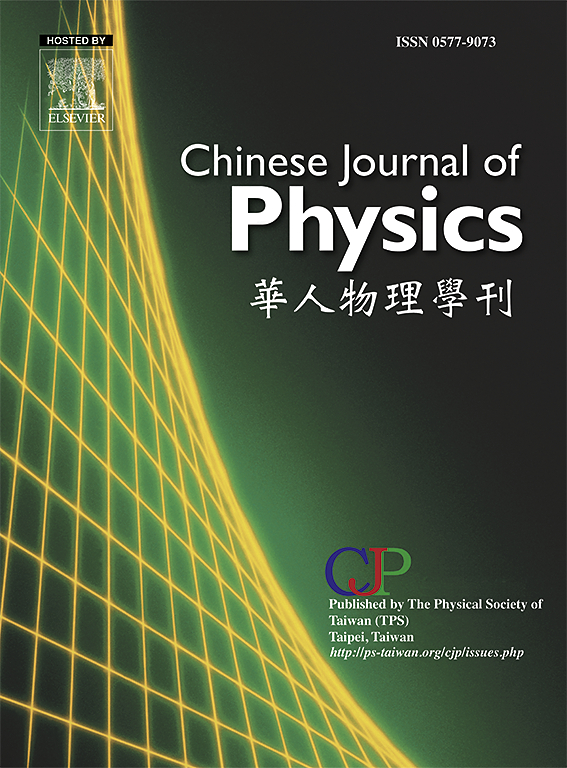Couple stress effects on thermosolutal convection in Navier–Stokes–Voigt fluid
IF 4.6
2区 物理与天体物理
Q1 PHYSICS, MULTIDISCIPLINARY
引用次数: 0
Abstract
The present study advances the theoretical understanding of thermosolutal convection in a Navier–Stokes–Voigt fluid with couple stresses, which is relevant to a range of industrial, biomedical, and geophysical processes involving fluid transport as well as heat and mass transfer. This study aims to analyze the influence of couple stresses, solute gradients, and viscoelasticity on the onset of both stationary and oscillatory convection in the Navier–Stokes–Voigt fluid. Linear and nonlinear stability analyses are performed by formulating eigenvalue problems using the normal mode technique and the energy method, respectively. These eigenvalue problems are solved via a single-term Galerkin method to determine the Rayleigh number. The identical Rayleigh numbers obtained confirm the absence of subcritical instabilities and indicate global stability within the studied parameter range. Couple stresses, solute gradients, and viscoelasticity influence the onset and characteristics of oscillatory convection, either promoting or inhibiting instabilities depending on their relative strengths. Both couple stresses and solute gradients stabilize the convective system. Additionally, viscoelasticity does not affect the onset of stationary convection but significantly enhances the stability of oscillatory convection.

耦合应力对Navier-Stokes-Voigt流体热溶质对流的影响
本研究提出了具有耦合应力的Navier-Stokes-Voigt流体中热溶质对流的理论认识,这与一系列涉及流体输运以及传热传质的工业、生物医学和地球物理过程有关。本研究旨在分析耦合应力、溶质梯度和粘弹性对Navier-Stokes-Voigt流体中平稳对流和振荡对流发生的影响。线性和非线性稳定性分析分别采用正态模态技术和能量法进行特征值问题的表述。利用单项伽辽金方法求解这些特征值问题,确定瑞利数。得到的相同的瑞利数证实了不存在亚临界不稳定性,表明在所研究的参数范围内具有全局稳定性。耦合应力、溶质梯度和粘弹性影响振荡对流的开始和特征,根据它们的相对强度促进或抑制不稳定性。耦合应力和溶质梯度都稳定了对流系统。粘弹性不影响静止对流的发生,但显著增强振荡对流的稳定性。
本文章由计算机程序翻译,如有差异,请以英文原文为准。
求助全文
约1分钟内获得全文
求助全文
来源期刊

Chinese Journal of Physics
物理-物理:综合
CiteScore
8.50
自引率
10.00%
发文量
361
审稿时长
44 days
期刊介绍:
The Chinese Journal of Physics publishes important advances in various branches in physics, including statistical and biophysical physics, condensed matter physics, atomic/molecular physics, optics, particle physics and nuclear physics.
The editors welcome manuscripts on:
-General Physics: Statistical and Quantum Mechanics, etc.-
Gravitation and Astrophysics-
Elementary Particles and Fields-
Nuclear Physics-
Atomic, Molecular, and Optical Physics-
Quantum Information and Quantum Computation-
Fluid Dynamics, Nonlinear Dynamics, Chaos, and Complex Networks-
Plasma and Beam Physics-
Condensed Matter: Structure, etc.-
Condensed Matter: Electronic Properties, etc.-
Polymer, Soft Matter, Biological, and Interdisciplinary Physics.
CJP publishes regular research papers, feature articles and review papers.
 求助内容:
求助内容: 应助结果提醒方式:
应助结果提醒方式:


